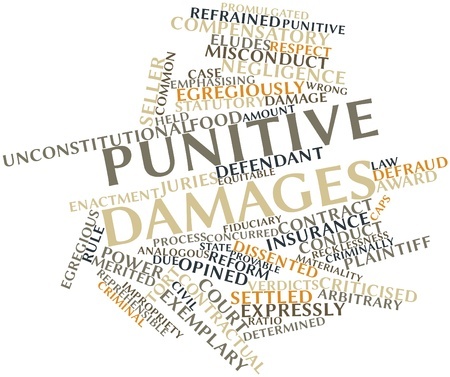Cap on wrongful death damages?
 What types of compensation are recoverable in a wrongful death claim?
What types of compensation are recoverable in a wrongful death claim?
Compensatory damages can be awarded for a variety of losses. They could be distributed equally among the beneficiaries or individually, based on the specific losses experienced.
Earning Capacity
One common form of compensation is expected earning capacity of the deceased. These damages usually commence at the date of death (or sometimes the date of injury that eventually led to the death) and could continue for a specified period of time or even up to retirement age.
Loss of Services
These are services provided by the deceased for which the survivors must now make special arrangements to complete them. An example might be the loss of childcare, when the parent was the primary caretaker of the children. Having to hire a babysitter or put the children in daycare would result in unexpected expenses. It might also include loss of household chores and responsibilities. For instance, having to hire someone to take care of these tasks.
There is generally no cap on economic damages in most states, like the two above and reasonable funeral and burial expenses. However, where Ohio differs from some states is that it doesn't cap noneconomic damages in wrongful death cases like the two below.
Loss of Society and Mental Anguish
The loss of the society of the deceased addresses ways in which the beneficiaries are deprived. For a spouse it could be the loss of companionship and consortium. For a child it could be the loss of attention, protection, advice, guidance, counsel and instruction. The mental anguish incurred by a surviving spouse, child or parent may also be included as noneconomic damages recoverable by surviving family members.
How can an attorney assist with a wrongful death claim?
Legal counsel is very important in a wrongful death claim. First, there must be adequate evidence that supports pursuing this type of case and that someone else’s negligent actions caused the decedent's death and resultant damages. There are also time constraints to consider. Generally the claim must be filed within two years after the death.
Although it’s beneficial to surviving family members that Ohio puts no caps on wrongful death compensation, that doesn’t guarantee a fair settlement. An attorney will make sure the claim appropriately addresses all damages. And with legal representation working hard on the family’s behalf, this frees them to focus on the grieving and healing process.
Wrongful death cases are oftentimes complicated, with various laws that may affect them. To protect your rights and those of the rest of your family, consult with an attorney as soon as possible. Call Ryan, LLP at 877-864-9495 or
contact us online to set up a consultation.
About the author of this article: Thomas Ryan
 What types of compensation are recoverable in a wrongful death claim?
What types of compensation are recoverable in a wrongful death claim?